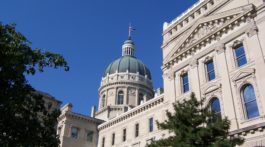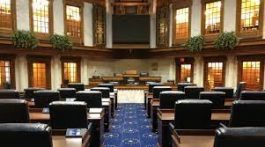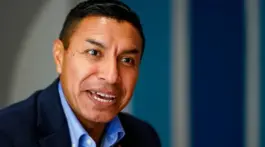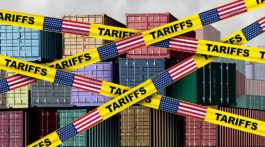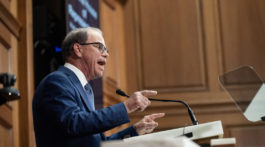by Abdul-Hakim Shabazz, Esq.
Nine years ago, the State of Indiana passed the Religious Freedom Restoration Act. It basically said that if the government was going to infringe on religious liberty, it needed to have a pretty good reason for doing so. Proponents said it was necessary to ensure religious freedom, but opponents said it was basically a big giant anti-LGBTQ bill in response to the legalization of same-sex marriage.
So I decided to do something that was very rare back then and still is today: I read the bill. So I went to my usual spot at Nicky Blaine’s Cigar and Cocktail Lounge, ordered a drink and a cigar, and noticed something. One thing was that there was no language that said RFRA could not be used as a defense in a crime. That’s something opponents had warned in the Indiana General Assembly, so I wasn’t that surprised at that.
What I did realize was the state of Indiana may have legalized marijuana for religious reasons. I draw a parallel to the use of peyote in some Native American spiritual rituals. So I sat there for a second and thought about the concept of the “law of unintended consequences” when lawmakers try to make a law to address one issue and inadvertently open up a whole new can of worms.
Enter Bill Levin.
After reaching my conclusion, I ended up forwarding my discovery to the long-time marijuana advocate. And within 24 hours, that guy (who, by the way, is one laboratory accident away from gaining superpowers) was at the Secretary of State’s office filing his paperwork to create the First Church of Cannabis.
You could have sworn it was the end of the world as we knew it. The neighbors protested. The local church was up in arms, and then Marion County Prosecutor Terry Curry and IMPD Police Chief Rick Hite threatened to prosecute anyone who attended the service. Later, they clarified that they would not arrest us media folks for simply doing our jobs. So then came day one. The church service was actually like any other charismatic church service, and like a lot of services, a bit on the long side. But they got through everything just fine.
Fast forward nine years later. Not only is the Church still there having their weekly services, but marijuana legalization is actually being taken seriously by some Indiana lawmakers. Heck, even all three candidates for Governor support some type of legalization. Republican Mike Braun is open to medicinal marijuana, while Democrat Jennifer McCormick and Libertarian Don Rainwater support legalization for both recreational and medicinal purposes.
But let’s be honest: for all practical purposes, marijuana is legal in Indiana because our adjacent neighbors have legalized it. Illinois, Michigan and Ohio have legalized it for recreational and medicinal purposes. Kentucky has legalized it for medicinal purposes only. So, no matter where you are in Indiana, you’re basically an hour’s drive and some change from legal pot. And even if you travel outside the immediate region, a lot of other states have legalized it; nearly 40, which, by the way, is enough to amend the U.S. Constitution. Not to mention that the FDA is in the process of taking marijuana off the Schedule I list and moving it to the Schedule IIl list.
Let’s face it folks, legalization is inevitable. In fact, it’s already started. And I’m not just talking about CBD shops. Back in 2021, Indiana lawmakers passed legislation that said if a driver is found to have THC in his or her system after a crash and they didn’t cause the crash or show impairment, they can’t be charged with OWI.
You can only oppose legalization for so long. If you don’t believe me, just ask the opponents of Sunday retail alcohol sales and Daylight Savings Time.
Abdul-Hakim Shabazz is a licensed attorney in Indiana and Illinois. He also is the editor and publisher of Indy Politics.



